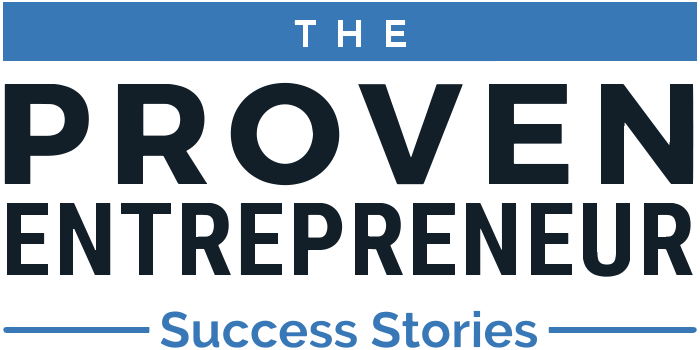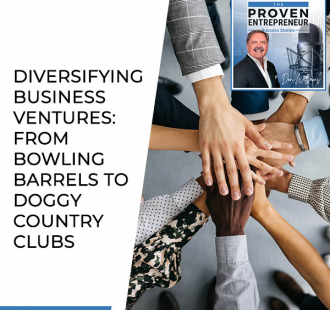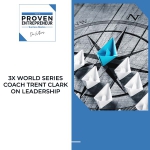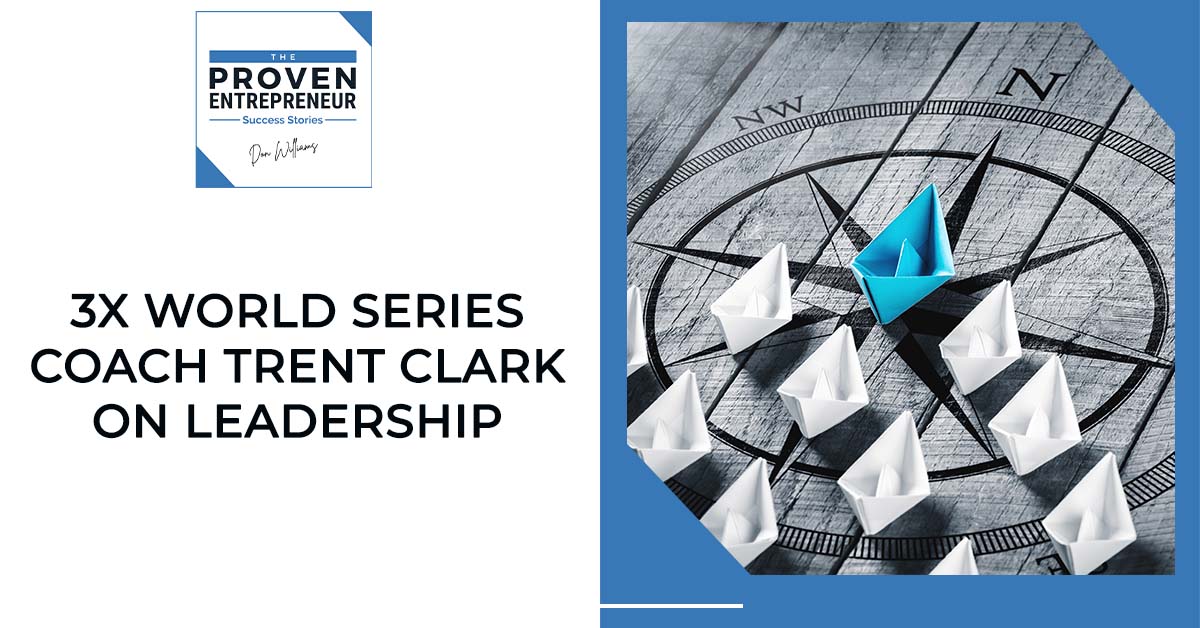
Trent Clark was a former 3X World Series Coach. Now? He is the CEO of Leadershipity, a business consulting firm that helps create winning systems for sustainable organizations through exceptional leaders/coaches. He joins host Don Williams to discuss the common formula in sports and business that equals success. Trent discusses the most important characteristic that differentiates a leader. A hint? It’s more than just talent. Tune in to find out and learn more about his transition into entrepreneurship and how his career in sports aided his journey.
For information on how to work with Don visit Work With Don Williams
You can also reach out to Don Williams at https://donwilliamsglobal.com
Please join Don and his businesses in support of St. Jude’s Children Research Hospital in its Mission to cure Childhood Cancers. You can donate to St. Jude at stjude.org/donate
—
Listen to the podcast here
3X World Series Coach Trent Clark On Leadership
Players/Employees Who Want to Work Outperform More Talented Players/Employees Who Don’t
I have a phenomenal guest, Trent Clark, joining us from Grand Rapids, Michigan where I think you live, but you have offices everywhere. A funny story. I met Trent for the first time, maybe a couple of weeks ago. We’re talking on a Zoom call about something unrelated to the show. I’m a baseball junkie. I played and coached baseball and softball for like 50 years because I’m old. I’m talking about baseball and he’s like, “Do you know my background?” I was like, “Not a clue.” He said, “I’m a former professional Major baseball player and a former Major professional baseball coach. In fact, I have three World Series rings.” There’s one. Thank you so much. Trent, welcome to the show.
Thanks, Don. I’m super excited about joining you. We’re kindred spirits. Entrepreneur organization has brought us together but the passion and desire to help people get better. I’ve been a long time coach. You and I have a love for the sport of ball and however that ball is played. I love it. I’ve got a number of young kids we’ve coached who were now in the softball ranks at college. It’s awesome. I love it.
Let’s jump right in. I’m going to take you all the way back to little Trent, so 5 to 18. In your home, whether that was with your mom and dad or grandparents or wherever you grew up, was some adult entrepreneurial?
Yes. My father was very entrepreneurial. I shouldn’t say very. He was an accountant. As entrepreneurial as accountants get, my father was a college professor. He was highly educated but he fell into a company when he started doing taxes for people who were like, “I can’t do my taxes.” He’s a teacher so he had all the teachers very quickly, then he got involved as a board member in the bank. They said, “We have a lot of clients who need tax work.” Before he knew it, he had a nice little small firm in Battle Creek, Michigan, the Clark Accounting. That was a huge moment for him.
This is one of my entrepreneurial journeys. You know that as entrepreneurs, we start early. I was delivering newspapers and shoveling snow. I was doing anything to make money. My dad would help me on Sundays. He would help me with the Sunday papers because the inserts were heavy. It was like a workout. I would put like twelve papers and I would tear off down the street. He would drive the car to the end of the block, then I pick up twelve more and tear down the other one. He would be waiting every time with the car. We would knock out the route like 35 minutes, then we would go take breakfast.
There was a pivotal moment for me. I was probably in 7th grade. My father is a very stoic accountant. He’s a funny guy with a dry sense of humor but he was giddy. It was palpable. I said, “There’s something different.” He said, “I have found that my business is now supporting our family. I don’t need my teaching anymore to support our family. I teach now because I love teaching.” That was like, “You could see a peace of mind.” I’m like, “Where can I get some of that?” Off I go on the entrepreneurial journey and I’m still seeking that peace. I’m in my 50s and still seeking.
I love that. In my sales consulting practice, many times, I see entrepreneurs are not quite doing enough business. They’re always walking around under this clout of worry and stress, and how is it going to work? Over a period of time, when you start to make some progress and you start winning some sales, it’s one quick trip across the bridge where they go from being stressed and then start being a little cocky because I got the dope coming in. They pass on that deal or pass on that employee. A few months ago, they would have been fighting tooth and nail to win. It’s a different air in their sales and where they’re supposed to be, where they were and what they need to get rid of. Which of those childhood efforts would you consider being your first job?
Life has been this fine line between confidence and arrogance. You can walk that line of confidence and then cross into arrogance, and the whole thing becomes a house of cards and falls right on you. Click To TweetMy first job was delivering newspapers. That was my first job.
We won’t be able to tell that story very much more because kids won’t know anything about paper delivering.
I know I saw a delivery person ride by on a bike at my neighbors and drop a paper. I was like, “There’s a paper guy.” It wasn’t a boy. This is a young man but it was so valuable. I had to collect the money and customer service. My route was like, “This house wanted it in their screen door. This one wanted it in their backside porch.” It was personal customer service. At Christmas time, it was banana bread, chocolate and M&M’s. I thought I was a hero.
You did a good job.
I was getting expanded. I knew I was getting a pretty good job because I started with four blocks, then they gave me four more and they gave me four more. I ended up with twelve blocks and three routes. I think that was one of my entrepreneurial ventures too. When I was in 8th grade and I started playing junior high football. We got to practice after school. I can’t go home and do papers before I go play rocket football.
I got three people working for me. Chad, Ben and I think it was Dennis were all coming in and they would each take four streets. I used to give them $1 and I would make $5. I was like, “This is awesome.” I went to football practice and I made $10, Monday through Friday. I’m like, “This is entrepreneurial. I got a job and I got a company.” I thought that was a big deal.
That’s where the entrepreneurial sunshine graces you for the first time, “I can offload all this and still make money and do what I want to do.” Many entrepreneurs are still chasing that now. Dad was entrepreneurial and accidentally, which happens to a lot of entrepreneurs. They will tell you, “I wish I had masterminded it and it was part of this grand plan and grand scheme. I said yes to something one time. The next thing I knew, a year later, I was in business for myself and making more than my full-time gig and life was good. I liked it.” That’s the American story. After very young Trent, did you then join the Merchant Marines, backpacked across Europe or went to college? What’s your story? What did you do from there?
I didn’t do any of that. It’s chill for me. The high school story was all about sports, then it became this audit of excellence. I liked coaching. My dad was a good coach and I like teaching. By the time I was sixteen, I had a job teaching tennis. My high school played in three state championships in a row. My sophomore, junior and senior years. I went on to play in the junior college national championships in tennis. I was a tennis and baseball guy, which are both spring sports.

It’s a pain in the rear but I’m traveling the world playing tennis at a high level. I got baseball aspirations too. National champions and state championships meant so much. The last national championship was in 1990 and I was in the World Series in ‘95. It was a constant strive for how to be better. The four years in between were how do I maximize my career? How do I get better? How does the University of Toledo become a better baseball team? How do we get excellent? We have never found a solution, by the way. I was fortunate. I was blessed. I was a hard-working kid. I had some good people that knew me, like Nick Saban and Ken Mannie and some good baseball coaches.
I got an opportunity with Detroit and I turned down a chance to sign when I was younger to stay in college. At the end of it, I’m spending 4 or 5 hours in the training room, doing anything to get a chance. I felt like the writing was on the wall and they gave me that, “You would make a good coach. Why don’t you come and coach for the Tigers?” I thought, “It’s a job transition.” I never played in the Majors and I went right in. In 1993, I went back to Detroit. Being a Michigan kid and I coached for Sparky Anderson and the Tigers. It was unbelievable.
What an experience. As a kid, I started playing when I was about five and got to high school. We were a good baseball club but I played second base. There was a young guy Marc Giles. He was a year younger than I was but he could play circles around me. My whole life, I played circles around everybody else but I could hardly carry his gym bag.
That took me to be in a pinch hitter. I was like, “I’m dying here.” He was drafted out of high school to the Tulsa Drillers but it doesn’t make any difference. I wasn’t going to be drafted anywhere, but it was a very tough sport and very competitive. I loved the fact that you coached there. You were a Major League coach for how long?
I started out as an intern coach with the Tigers. It was my project. It was to develop the Minor League and the player development. I was interacting all the time in the Major Leagues but I didn’t have a Major League contract. I went in, then the strike hit in ‘94 and they shut down baseball. I started my first company right there. My own private training. Tony Phillips and all these athletes wanted to go to Arizona and train until they decided the season is going to start again.
I had built in clients and could expand in Phoenix, so it was pretty exciting. The writings are on the wall. Everything is going to go back. They were not going to go with the scabs. Nick Saban took a job at Michigan State. I knew Nick from when he was at the University of Toledo as the head coach. He needed another strength coach and they offered me a deal to come there. In hindsight, it was a unique deal. It was a graduate assistant coaching job, so they would pay for my Master’s and pay me peanuts.
I’m a young married guy but my wife was a teacher. She made decent money. We had benefits. I was like, “I’ll get my Master’s.” Coach Tom Izzo was in his first year and Nick is the strength and conditioning guy. We started training athletes up and getting Michigan State on their winning ways. I wasn’t even there a year when Cleveland called and said, “We got an opportunity.” I left and went back to Major League baseball and became the assistant Major strength coach for the Indians. Before I knew it, I’m in the World Series in ‘95 and ‘97.
Leaders were not born. You can train into that. Click To TweetWe’re developing players all over the place. Our Triple-A team could beat half the major leagues. We are awesome. We had depth and it was a lot of fun. It was fast. People would go, “Do you want to go on pro sports?” I like to tell people I lived in 17 places in 18 months. That’s how fast it happens. You got to go here. Get an apartment. You would be there for a month, then we’re going to go to spring training and go. People will go like, “I don’t like to stay overnight at hotels.” I’m like, “That’s nothing to me.”
It was accidental with the baseball strike. You started your first company as a reaction to that. That’s about the equivalent of getting hit by lightning in baseball, but a couple of those in 130 years or something.
The only one that ever stopped the playoffs from happening.
As in the case in many entrepreneurial stories, for a while, your wife had a job. She had the benefits and you’re like, “I can go do this.”
I made good money. In my first job, I made good money but a lot of us entrepreneurs build bad models. What happened was I had this thriving private training business. I could make anywhere from &175 to $250 an hour. This was ‘94, ’95. This was huge money back then. I was living in Phoenix, living the dream but very quickly I realized, “I can’t scale. They need me. Everybody wants me.” I got two great trainers. I had Brian and Trisha. They were fabulous but they can’t charge $200. They never coached in the Major Leagues.
For them to get $80 was a lot and they want their cut. I’m figuring this out. At the end of the day, there’s a ceiling because I can only train so much. You had to figure out how to build and scale that. This was long before we go, “Do the video of Tibo or Taebo.” Billy Blanks was there. It was right at that time. People were starting to figure out, how do you monetize your education and knowledge and do that?
I didn’t know how. I built a decent brand. It was a lot of fun. My clients went back to pro sports and my revenue was cut by two-thirds over the month. I’m like, “Coach Saban, I’m going to come and regroup and figure out what’s next.” We’re better than to coach with coach Saban. This guy is a legend. Even then, we knew in Toledo that he was the guy. You knew it when you met him. He’s got that aura.

He had the presence. Back in your history, I want you to share if you will a hard lesson or something painful and hopefully, in retrospect, it turns out, “That was a good thing that happened.” That’s not always the case. Sometimes in the entrepreneurial journey, there are some tears, blood and sweat. It hurts.
I got twenty. The first one that probably hurt and changed my view was after ‘95, ’97. We go to the World Series with the Indians. We have probably one of the best if not the best team in Major League baseball. We have a big budget for strength and conditioning and that’s early. In 1995, a lot of clubs didn’t invest in that. They were, “You’re going to workout. You’re going to be too big.” The Oakland A’s were vested because they had players that were working out so hard.
A few others like the White Sox were vested, but there weren’t very many. My next brilliant entrepreneurial venture was all these athletes knew I owned businesses. My father was an accountant and I had a couple of real estate investments. They start asking me questions about their taxes and stuff like that. I had all the contacts, Hammer Strength, Life Fitness, Cybex and all the big brands. We were coming in. They were using our facilities to showpiece. I knew all their executive salespeople.
I said, “Can you guys cut me in on a dealer contract to sell your product? I’m going to sell directly to athletes.” They were like, “You’re not going to make any money.” Before I knew it, I was designing gyms for people’s homes. They would go home in the offseason and take their walkout on their 3,200 square foot basement. They all got multimillion-dollar homes and they put $100,000 of commercial-grade equipment. It’s the same that they’re going to get when they play for the San Francisco Giants, Cleveland Browns, Detroit Lions, Detroit Pistons or whoever.
They wanted that gear and be consistent. I’m selling them on like, “Your wife is going to be in great shape. She’s going to workout. Everyone is going to be healthy. The kids will be Major League athletes also. They are all pros. I know he’s two but he’s going to be the next LeBron. You can see it. The way the kid falls down, it’s like Michael Jordan has got nothing on this kid.” They were like, “Yes.” I’m like, “Let me show you how to write that off because this is part of your job. You don’t pay tax on that because you’re a pro athlete.”
They are like, “What do you mean? I’m like, “$100,000, before you even pay any tax agent, this is free money for you.” They understood that and I educated them. That was a lot of work with athletes. This was cooking. All of a sudden, I’m doing these installations in Florida, this place, that place, and wherever athletes were going home for the offseason. One day, I got this installation and scheduled it two weeks out. I called my athlete to check in. The vendor had been connected now and started talking with them.
All of a sudden, my whole pipeline was ghosting me. They’re not talking to me. I’m like, “What’s up?” All the distributors cut my margin. All the owners of the equipment said, “This is great for Trent. Why don’t we have our sales teams do this?” It would make perfect sense. They got to pay me a margin. They controlled their margins better and they probably could sell it better than I could. I was doing one-offs. They could probably upsell and sell more. I’m sure they have lots of probably good reasons to do that. In two months, I was out of business.
We don’t need the best players. We need the right players. Click To TweetThey did a Trentactomy.
I was like, “I’m stupid. I don’t know the business. What was I thinking?” It’s all these things. I was beating myself up. There’s a lot of negative self-talk. I was somewhat frightened to do another business but you got to scratch the itch. I’m a risk guy. I’ll take a calculated risk. The next thing I’ll do, I want to buy a franchise and learn to do business. I was like the 12th franchisee of 1-800-GOT-JUNK?. I bought Phoenix and Brian Scudamore is a lifelong friend. He’s awesome and I learned a lot. I had to learn.
That’s what we all do. We’ll learn one way or the other. That’s for sure. You can do it proactively or reactively, but learn you will. Thanks for sharing that hard lesson. What about a warp speed moment? Business is going along pretty good and there are no complaints. All of a sudden, one or two things come into place. You have that hockey stick and it’s like, “Life was pretty good. I can’t even tell anybody it’s so good.” Do you have a moment like that you can share?
I’m still waiting for that moment. I’ve had a couple of small moments. Maybe shinny sticks. Not the full hockey stick. We’ve had some moments. A lot of them have been around what we do now. We do leadership development and consulting. All of a sudden, everything comes together with the team, the blend and the product. All of a sudden, everything finds that sweet spot. I’ve seen that on teams and organizations. I’ve seen that where you feel it and it’s palpable.
You feel like there’s a contest. It’s like what you talked about with that salesperson where you get across the bridge and the shoulders come back a little bit. You’re like, “I’m pretty much good at this. I can do this.” It’s scary because my whole life has been this fine line between confidence to arrogance. You can walk that line of confidence, then you cross it into arrogance. The whole thing becomes a house of cards. It can fall right on you like pride. It gets at people.
I’ve seen it happen in sports, in business, in marriages and all sorts of different things. We should be embracing that moment in gratitude and thankful. The radar goes up for me. We have got to mine the ship now. We’ve got to be very focused because now people are coming for you. Part of that is the audit of excellence. When I was in school and you were the number one team, everybody wants to knock you off. Everybody is coming for you. When it’s going so good and you become number one, it’s like, “Who’s coming?” You got to get ready.
I had Scott Spiezio on my show, The Winners Find A Way show. He’s a sharp guy. He always says and I hate it. He says, “It’s easy to get to the Major Leagues. It’s hard to stay.” First of all, it’s not easy to be in Major Leagues. I tried and it didn’t work. He makes a great point on success. I heard this great quote and I can’t remember what book it was from. It says, “Success is reaching your goal. Excellence is sustaining it.” That’s like the big league. If you’re going to stay there, excellence is required. If you can’t maintain that excellence, someone will, “Here comes Don Williams. He’s awesome. He’s three years younger than you and he can do everything. He runs better and runs faster. We’ll take a shot.” You’ve got to maintain it. Sustainability is not an easy thing.
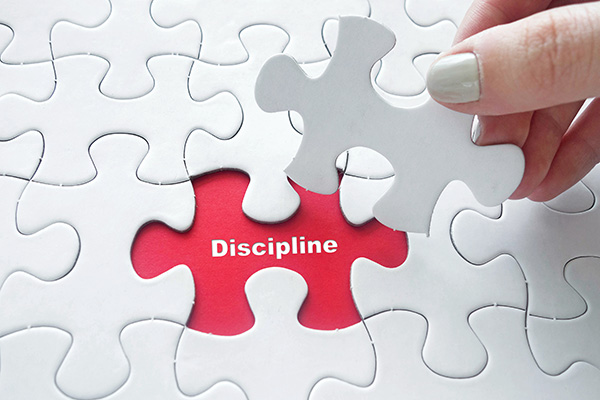
It’s not easy. It’s hard enough to climb the mountain. It’s harder to sustain it.
Can you imagine? You can get knocked off.
It’s harder to stay there for sure.
I don’t think they tell you that either. It’s like, “You’re going to climb the mountain and you’re going to get to the promised land. When you get there, you’re going to fight every day. It’s going to be awesome. It’s going to be unicorns and rainbows. There’s going to be some unicorn and rainbow moments and puppies. It’s going to be awesome. You’ll be playing in the high grass with your little puppy and a grizzly bear will come out and you’ll have to kill it.” You’re like, “How do I do that?” “You better figure it out if you want to stay.” You’re like, “No one told me about this top-of-the-mountain thing.”
It’s tricky. One thing I share with my clients is excellent people require excellent leadership. It’s not good enough to recruit them and get them on board but if you want them to flourish, you have to provide excellence. It’s probably even more of genius than excellence. A lot of us have a wide avenue of excellence. There are a lot of things we do very well, but there are only a few things that we do almost magically. It’s best for us to play in the magic of what we do very well.
Can I use that, Don? That was so good. I love that. What we talk about in that is everyone wants a great team. I’m like, “What did you do to get them?” We put an ad in the class. I’m like, “Do you know how much money we had in scouting, going out, seeing people and vetting them at combines? Can you deliver?” We were wrong all the time.
You’re still wrong and you think like, “Trent Clark, you can’t miss this kid,” then this guy can’t get out of A-ball for whatever reason. It has so much more to it. They go, “I want an excellent team.” “Do you have excellent players?” No. “Are you developing?” Not really. “I don’t if you can.” Come on now. This is like a magic charm or lucky charm. You’re making a wish. Hope is not a strategy. We got to get a team and there’s going to be work.
Talent is not enough. Click To TweetI want to repeat that. Hope is not a strategy. It will get you nowhere. It takes a little hard work. What about a nugget? You’ve got 51 years. You’re the only person on the planet who’s ever had your unique set of experiences. There have been some wild highs. Some probably desperate lows and a lot of stuff in between. To share with the Proven Entrepreneur tribe around the world, what’s one nugget from the mind of Trent that if you could share with a bunch of entrepreneurs, it would be, “Listen to me when I tell you this.”
For a bunch of entrepreneurs, I will tell you that there are a lot of good leaders. You can be a good leader. I do not believe leaders were born. I believe you can train into that. The one characteristic of every great leader, I might say great entrepreneur but I would probably have to vet that a little bit, is self-discipline. There’s another level of discipline among the top and we need them. We go, “Wow. They’re good. I got to be more visible. I got to get up 30 minutes earlier. I got to put myself to bed 30 minutes earlier.”
These little things. We talk about this a lot with folks. Little pivots and little changes have a massive impact across these waves. We throw the little pebble in the pond and the waves go all the way across the pond. These little pebbles that you keep throwing in are having bigger and the impact is going. Self-discipline to me is a big thing. When I come back to the grit formula, which I love, especially in both sports and business, I love the fact of you can go in and say, “Here’s my talent level. Here’s my effort level and that equals skill.”
We see Tom Brady who started out as like a 6-talent and a 10-effort guy. That’s 6 times 10, then we go 60 times 10 because effort comes twice. We get to 600 and we’re like, “Every one of us would take 600 levels on our executive team.” What happens to 6 talents is 10 effort repetition of the hardest and the best I can do. Focused intentionally each and every time. Pretty soon, Don and I are going to, “It looks like a 7 now. Your arms are getting better. The accuracy has improved, better play calling.” All of a sudden, after another 2 or 3 years, he’s an 8. Now he’s a 9 and you’re like going, “900.”
There’s all the talk. Is he the goat? He’s got another mental level that people don’t have. That exercise for me for leaders should be significant because we don’t need the best players. We need the right players. I coached 10 talents with 3 efforts. That’s 30 times 3 is 90. On a scale of 1,000, there are 90? I tell people if they’re under 200, don’t even hire them.
What are you doing? You’re going to beat your head against the wall trying to get them to follow the procedures and this and that. They got talent but talent is not enough. I love that line from the Olympic movie Miracle, “I don’t need the best players. I need the right players.” That’s two things but I think that self-discipline and that quick form of understanding of what you need are pretty critical.
I love that on self-discipline. I’ve always believed that the little things make a big difference. Pretty much everybody is doing the big things right. That’s not that unique that they’re doing the big things right. It’s the little things that make a huge difference. I’m a firm believer in that. Now, I’m going to put you in a time machine like Star Wars. You’re going to climb in there. We’re going to take you back and you get to have about a 90-second meeting with twenty-year-old Trent. In that 90-second meeting, you can share one thought that you think will help you in your entrepreneurial journey from 20 to now. Give you a little time there. Set it up. Step into the time machine. Back you go. What’s that thought?

The two thoughts, the number one is, “Trent, you will depress yourself living in the past. You will have anxiety and stress around the future. You have to be present. That’s why it’s a gift. A present is a gift. You have to be present in it and do not be afraid.”
I love that. Before we wrap up, how can we support you as the Proven Entrepreneur client, Trent? This is a time for you to ask.
Thanks. What we do is we create better teams. We all want teams of coachable champions because they’re sustainable. Sustainability is a big one, accountability and responsibility. If you’re looking for that information, that’s what we provide. We like to help organizations get better in that way. What I know is that as you and I, Don, no one went to school for coaching. No one went to school for leadership. That’s what we provide. You can find me and we try to deliver a lot of free content. I would be happy if you join us, subscribe and follow us. It would be great.
What’s the best way to find you or the best way to reach out to you?
I am on LinkedIn. That is very easy. Trent@Leadershipity.com. You can email me directly. We are over on our YouTube Channel, Trent Clark or Leadershipity. You’ll find us on most of the networks.
That’s good to know. Trent, thank you so much for coming on the show.
Don, I’m so thankful and blessed for having me. It’s always great to spend time with you. Your reputation proceeds itself. The opportunity is all mine, so thank you.
Thank you so much. That’s the episode of the Proven Entrepreneur Show. See you next time. Thanks. Bye.
Important Links
- Trent Clark – LinkedIn
- 1-800-GOT-JUNK?
- Trent@Leadershipity.com
- YouTube Channel – Leadershipity
- Trent@Leadershipity.com
- Scott Spiezio – The Winners Find A Way Show episode
About Trent Clark
 When I was 13 yrs old, I had career-day at school and had to determine 5 things of ‘what my life would be like when I was 30’ (my 30th Birthday happened to be on Y2K)! I wanted to be a Pro Baseball Player. This was my first experience of dreaming/vision work, goal setting, strategy planning, seeking advisers and Mentors, execution on what to do (and not do) plus analysis.
When I was 13 yrs old, I had career-day at school and had to determine 5 things of ‘what my life would be like when I was 30’ (my 30th Birthday happened to be on Y2K)! I wanted to be a Pro Baseball Player. This was my first experience of dreaming/vision work, goal setting, strategy planning, seeking advisers and Mentors, execution on what to do (and not do) plus analysis.
I help people. I explain the journey that sent me to the World Series 3 times and how I became a ‘dream maker.’
Having spent most of my adult livelihood among top 1% producers in sports and business, I assert my blend of business background, professional athletic development, and experience with MEASURABLE training, reinforced learning, leadership, mentoring and coaching expertise for individual and team development strategies to maximize human potential.
My developmental management, mentorship training, and leadership education came directly under coaching greats; Sparky Anderson, Tom Izzo, Nick Saban, Mike Scioscia, and Joe Maddon, to name a few.
I’m an International speaker, owner, investor and Entrepreneur Organization (EO) Member & Global Contributor for Mentorship programs.
I energize audiences as a Speaker telling my story of Overcoming Obstacles and Sacrifice; the ‘Weight of the Ring’ – experience of ‘living the dream’ of Pro Sports & their lessons; and teach company’s the ‘Growth Positioning System (GPS)’ and how to set clear intentions for your team & company; along with the key behaviors of leadership and tools to use in a leaders’ role!
I currently serve Transitions Team and I’m CEO & Chief Leadership Officer of Leadershipity
For information on how to work with Don visit Work With Don Williams
You can also reach out to Don Williams at https://donwilliamsglobal.com
Please join Don and his businesses in support of St. Jude’s Children Research Hospital in its Mission to cure Childhood Cancers. You can donate to St. Jude at stjude.org/donate
